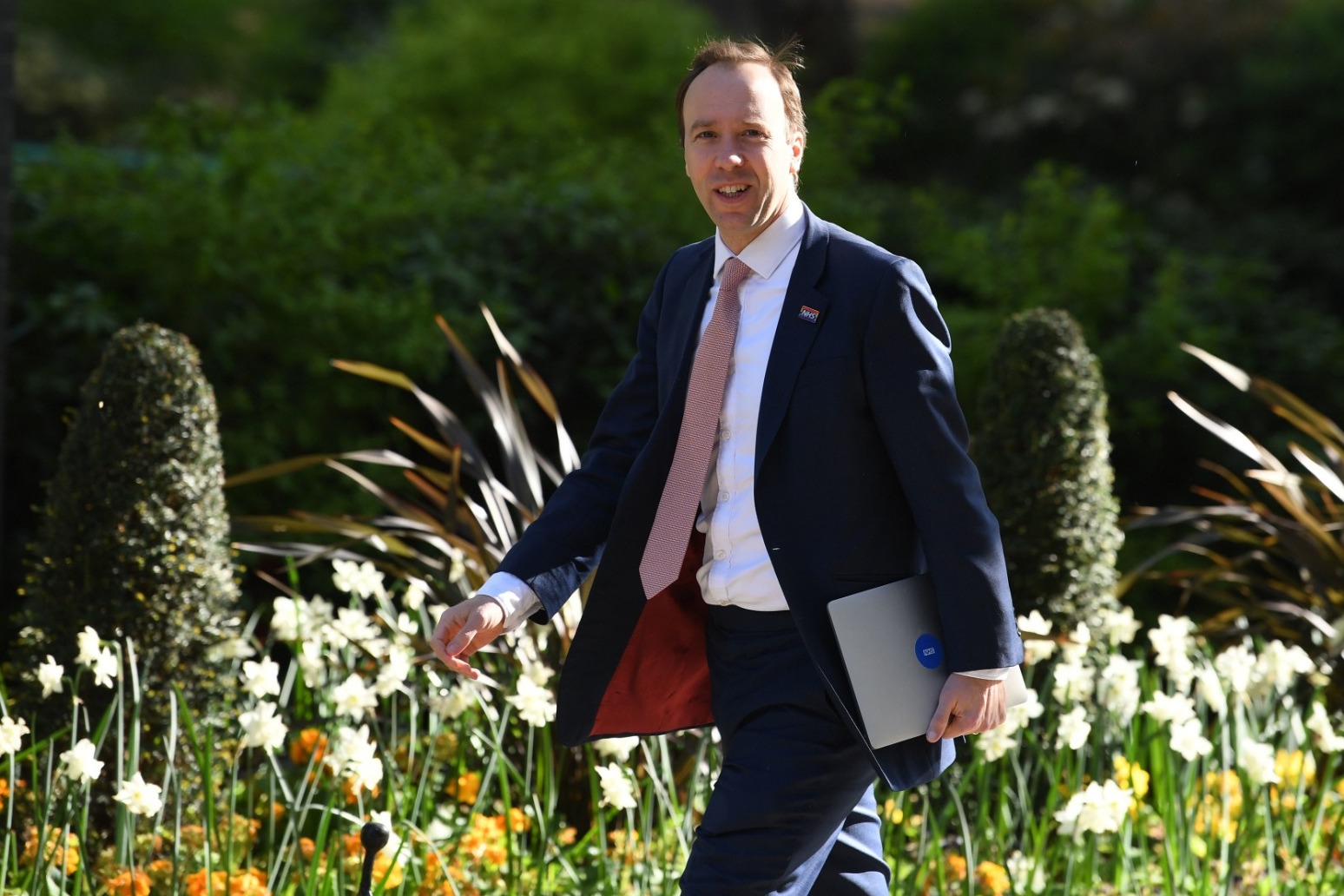
Ministers face anger over PPE shortages for NHS staff
Parliament returns amid mounting criticism of the Government over its failure to ensure NHS staff treating coronavirus patients have the protective equipment they need.
Ministers have insisted they are pursuing "every possible option" to secure additional kit but said that, with unprecedented worldwide demand, the situation is "very challenging".
The first of three RAF flights finally left on Monday for Turkey to begin collecting a consignment of personal protective equipment (PPE) including 400,000 surgical gowns.
But it is unclear when the items will arrive in the UK, with Local Government Minister Simon Clarke saying only that it would be in the "next few days".
The Government said meanwhile that 140,000 gowns had arrived from Burma - but with the NHS using 150,000 a day, the demand on resources remains intense.
With fears that staff in hospitals and care homes are risking their lives, the TUC called for an independent inquiry into the Government's handling of the issue to be mounted before the end of the year.
TUC general secretary Frances O'Grady said: "Every day frontline workers are being forced to risk their lives because they don't have the proper protective equipment.
"This is a grotesque failure of planning and preparedness. It must never be allowed to happen again. Our NHS, social care and key workers deserve better."
It comes as:
- Shadow Cabinet Office minister Rachel Reeves accused the Government of ignoring offers from British manufacturers to fill the gap.
- Dentists and anaesthetists became the latest groups to warn that they are working without adequate PPE.
- Chris Hopson, chief executive of NHS Providers, which represents hospitals and NHS trusts in England, warned that the NHS's supply of face masks could be jeopardised if the Government begins advising the public to wear them, saying "clear evidence" would be needed before advice was changed.
- The Scientific Advisory Group for Emergencies, Sage, which advises the Government, will reportedly consider the evidence at a meeting on Tuesday.
- Manjeet Riyat, the first Sikh to work as an A&E consultant in the UK, was named among the latest healthcare workers to die after contracting Covid-19.
- Nazanin Zaghari-Ratcliffe's temporary release from an Iranian jail has been extended for one month, her MP said.
The warnings over PPE came as the latest official figures showed a total of 16,509 patients had died in hospital after testing positive for coronavirus in the UK as of 5pm on Sunday, up by 449 on the previous day.
At the daily No 10 press conference on Monday, Chancellor Rishi Sunak insisted the Government was improving its sourcing of PPE both internationally and domestically.
However, the medical director of Public Health England, Professor Yvonne Doyle, indicated that staff could refuse to work if they believe they are not properly protected.
"Certainly people have to make their decisions based on whether they are in a risky situation or not," she said.
"It is very difficult to legislate for all of that from a distance here. But the guidance is very clear on what is safe and not safe to do."
The Government is also under pressure over its target of testing 100,000 people a day by the end of the month.
Following reports that some Whitehall figures are distancing themselves from the promise, Mr Clarke said it was "highly unfair" to suggest the ambition is not "empirically grounded".
"We are absolutely determined across the whole of the UK to hit this target," the Local Government Minister told BBC Radio 4's Today programme.
"As I say, we are going to move from 26 current testing facilities to 50. That will in turn obviously bring those centres closer to more people and make it more viable to go there. We're increasing the groups of key workers who can go and be tested."
Downing Street said on Monday that 21,626 people in England, Wales and Scotland were tested for coronavirus in the 24 hours up to 9am on Sunday.
But overall capacity dipped from 38,000 to 36,000 due the implementation of new processes in commercial laboratories.
Parliament resumes on Tuesday following an extended Easter break due to the pandemic.
MPs are expected to approve plans for new "virtual" sittings enabling them to question ministers thorough video links.
Under the "hybrid" arrangements, up to 50 MPs may still be present in the chamber in person, although they are being urged to stay away.
Meanwhile, former chancellor Philip Hammond said the Government must start setting out how it will restart the economy once it is able to begin easing the lockdown restrictions.
Speaking to the Chatham House foreign affairs think tank, he said that, while it is "primarily a health crisis", people should not be "intimidated into silence on the economic implications and consequences".
"The Government now needs visibly to be looking two or three moves ahead - to be turning its attention to engagement with the business community about the recovery phase," he said.
"This is a £2 trillion economy - you can't spin it up overnight from nothing and we owe it to all our citizens to make sure that when the green light is signalled, businesses can respond very quickly and that means being prepared."
Published: by Radio NewsHub